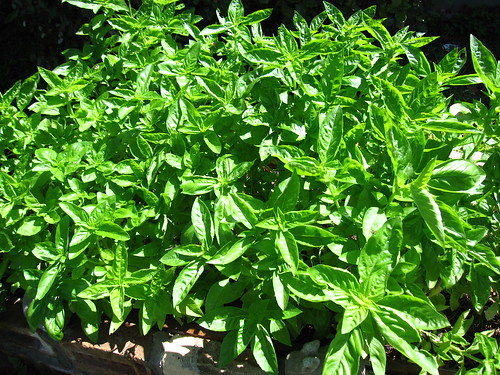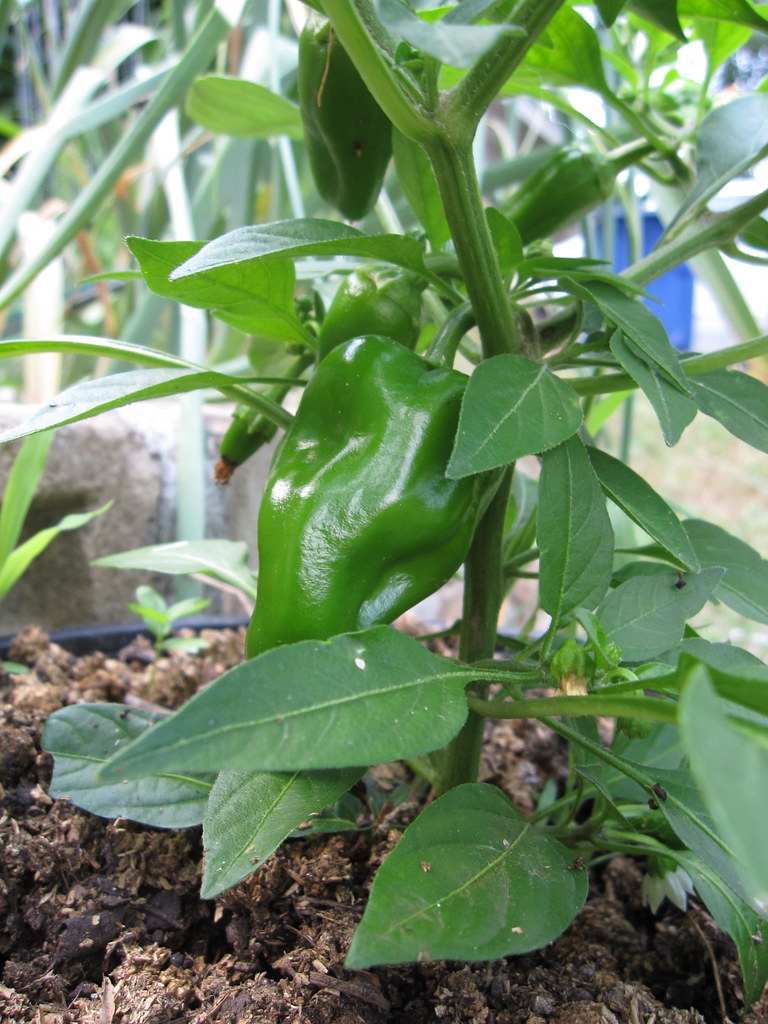
We've probably all heard the claims that the Mediterranean holds some secret for human longevity and the folks who live there are mighty healthy - could basil be a factor in this? Let's check it out.
VITAMIN K! There's a whole lot of vitamin K in basil. 60% of your daily value, in fact! Vitamin K is very excellent for your blood: helps it to clot, keeps your arteries clean, etc. You may need to avoid vitamin K if you are on blood clotting medication.
The real secret to basil's healthfulness is found in its flavonoids and volatile oils. Basil is known to be anti-bacterial and has been found to protect us own to our very DNA!
The unique array of active constituents called flavonoids found in basil provide protection at the cellular level. Orientin and vicenin are two water-soluble flavonoids that have been of particular interest in basil, and in studies on human white blood cells; these components of basil protect cell structures as well as chromosomes from radiation and oxygen-based damage.The essential oils drawn from the leaves of basil can combat certain bacterias that have become resistant to antibiotic drugs. Adding essential oils of basil or thyme to water used to wash produce can remove certain harmful bacterias that cause diarrhea and other unpleasantness. This is also true when using basil in a vinegrette or other topping to a salad (i prefer fresh chopped leaves right in with the salad greens), the basil will help ensure the produce in your salad is safe for you to eat.
In addition, basil has been shown to provide protection against unwanted bacterial growth. These "anti-bacterial" properties of basil are not associated with its unique flavonoids, but instead with its volatile oils, which contain estragole, linalool, cineole, eugenol, sabinene, myrcene, and limonene. -WHFoods
Basil is also anti-inflammatory and good for cardiovascular health. There are too many benefits for me to list here - check out the WHFoods article for elaboration. Needless to say - basil is nothing but good for you, so pile on the pesto! Be vigorous with your vinegrettes! Stock up on sauce! Okay, enough aliteration - but you get the idea: put basil in every dish!
Basil is relatively easy to grow, as well. It likes sun. It likes water. It doesn't not like the addition of fertilizer. I've had a difficult time growing mine this year as i planted it in pots that drain too quickly. Dry basil is sad basil. Keep pinching the flowering tops off to keep the best flavor in the leaves - but allow some to go to seed to ensure you'll get plenty of basil next year (be self reseeding or by saving the seeds to plant next year).



